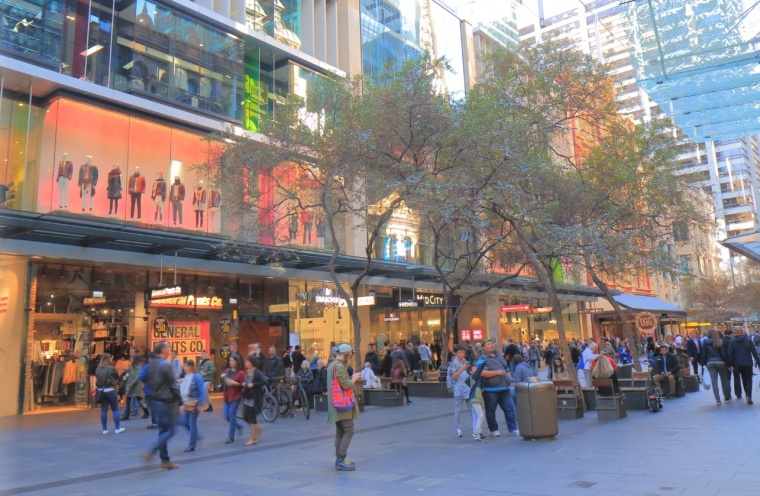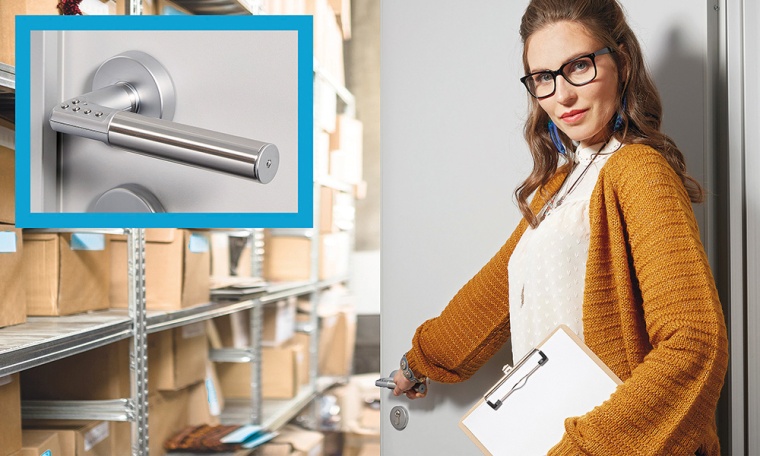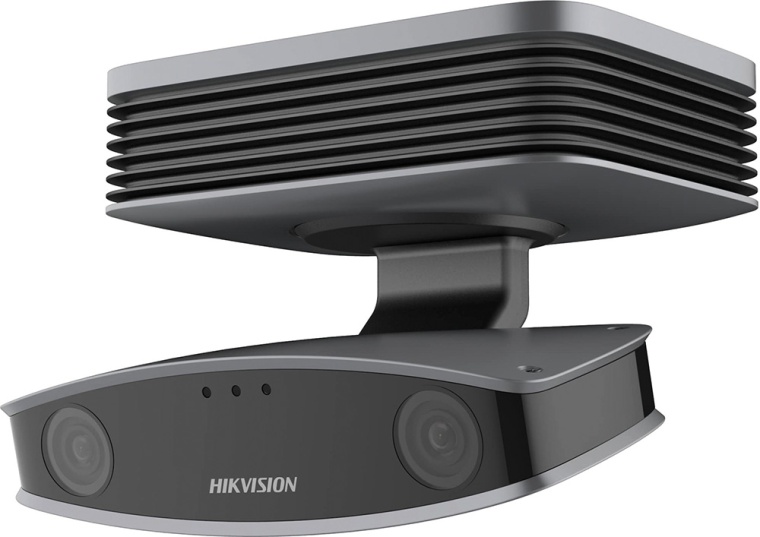Security for Retail 2020
Retail theft cost storeowners globally around 100 billion USD per year, the equivalent of 1.4% of global retail sales. Retailers need to cut these losses, but loss prevention profe...



Retail theft cost storeowners globally around 100 billion USD per year, the equivalent of 1.4% of global retail sales. Retailers need to cut these losses, but loss prevention professionals face various problems in their daily job. They have to deal with lowered budgets but also with increased crime. Additionally, they have to cope with Marketing Managers who want to improve the customer experience, which can, occasionally, increase the risk of loss. For example, by not locking electronic devices by a cable the customer experience can be enhanced, but the risk of theft can be increased.
To cope with this dilemma the standard approach of loss prevention professionals is to concentrate on cost-saving, leading security performance to a dead end. It is possible for loss prevention professionals to work with very cheap cameras, or even with mock-up cameras, but there is a very high risk of losing parts of the business. Modern IP surveillance solutions and intelligent management and access control systems can help to balance marketing and security needs.
Enhance Employee Productivity
A retail solution can increase employee productivity in retail shops:
- Unproductivity in the shop or in the backroom can be identified.
- Traffic jams at the point of sales can be detected, traffic patterns can be analyzed and staff resources can be optimized.
- Best practices can be recorded for employee training purposes.
High-resolution IP cameras connected to the existing IT network bring with them the benefits of digital technology. The most obvious benefit is the fact that with high-resolution pictures available, retailers are able to zoom in and freeze the frame at the exact point when the razor blade pack slips into the coat of a criminal and out of sight. Clear pictures that are usable in court make a big difference and might be enough to help with successful litigation or at least an admission of guilt. What loss prevention directors in large retail operations like best is the idea of potentially being able to share video between stores and corporate headquarters. The big advantage is that retail managers have remote access to any video taken in the store, both live and recorded material, from any desired location including mobile devices connected to the internet or the 3G network.
Add Value
With data integrated in an IP network, the retailer can add value to the system by taking advantage of video analytics built into the camera or included in management software. Simple motion detectors and trip wires can alert storeowners when there is unexpected movement in an area or unauthorized entry.
An intelligent video solution is capable of more than helping to catch thieves; they can also tell management how well the store is working. The system can provide highly valuable customer frequency information and enable behavior monitoring, giving security a new marketing- related purpose. This dramatically increases the return on investment as profits are influenced by factors such as consumer traffic, campaigns and promotions that are more successful when there is an understanding of consumer behaviour. Visual statistics show exact customer traffic flows, indicate where customers stop and record how long each stop lasts. The tills might record sales volumes, but the cameras can now record the number of store visitors, show stock takers the current level of stocks in storage and issue a message to the staff when shelves need replenishing.
Optimize Opening Hours
Video data can be used to monitor when customer traffic is high and low during the day. Staff hired for quiet periods is under-utilized and leads to high costs. Understaffing in busy times leads to a lower customer service level and a lowered sales performance. Retailers know that long checkout lines turn away customers. A solution that analyzes checkout lines can help to plan staffing levels and customer service provision and provide long-queue alerts in real-time so staff can be re-deployed to the registers, reducing the chance of customers being lost to queues.
Finally, modern systems can identify specific behaviors and instruct the camera system to identify and follow a person throughout the store. For example, if someone packs in a great amount of OTC painkillers, the camera will lock onto them as they walk through the store. Other cameras in the system will be instructed to follow the person and zoom in. Video analytics can also alert store management to a variety of other situations, such as a blocked emergency doors and specific shopping habits.
Clearly the data collected is of enormous value to the marketing department of retailers as well as the marketing department of companies selling through retailers. Using this data store managers can make sure that they have set up special promotions correctly and control if seasonal products are displayed in a timely manner, making a direct contribution to the retailer’s profit. Retailers can also address their suppliers directly and sell them the data collected for marketing controlling purposes. It is easy for Brand Managers or Marketing Executives to check what effect a TV or advertising campaign for a certain product has on the demand for the advertised product. If you control the traffic in a retail chain during a campaign you can get an in-depth analysis of customers’ behaviour as well as sales figures. Face recognition, for example, enables retail leaders to rely on actual data instead of assumptions concerning age and gender of customers.
Cloud-based Platform for Access Control and Video Management
ACRE companies Vanderbilt, ComNet and Open Options are gearing up toward an exciting Intersec show. Core of the presence there will be the award-winning cloud-based solutions, SPC Connect and ACT365. ACT365 is Vanderbilt‘s platform for access control and video management and is a good example for a clever retail solution. Clients can download an app on their smartphone. In case of an early-morning delivery, the store manager can identify the courier through a live video feed and then remotely open the doors of the loading bay to allow the delivery to be made. The manager can monitor all of this remotely and once the delivery is finished, they can close the loading bay door and it will automatically rearm SPC Connect is a hosted cloud-based solution designed specifically for installers to monitor, manage and maintain SPC panels remotely from any location. Both these solutions are designed to excel in several sectors, both have earned stripes and praise for excellence in banking and retail in particular.
Qognify’s Umbrella VMS is another VMS perfectly suited for organizations in the banking, retail, logistics and transportation industry, which operate large-scale branch networks with hundreds of sites and thousands of cameras to be managed and place a premium on their physical security strategy.
Enhance the Shopping Experience
Marketeers’ quest has now turned to technology to bring exciting new experiences to the shop floor, and at the front of the queue for these changes is the fashion industry. One of these innovative methods uses a camera, for example Hikvision’s DeepinView Facial Recognition Camera to capture a shopper’s gender and age to recommend suitable products, giving them an immersive experience.
Software can also recommend items – either as replacement, or even to complement, which increases the sale value. The DeepinView camera is armed with Deep Learning technology, which powers the smart element of the solution. Although the system does not keep records of those it scans, and so cannot identify them, it can detect how old they are and their gender using facial recognition. It can also be used to create a VIP customer scheme (with explicit permission from the customer) so that when the camera recognizes the customer entering the store, the sales attendants are alerted, with information about the customer. This means they can immediately approach them with a much more personalized service. This can really help shoppers and goes some way to make them feel special, understood and catered to individually.
Panasonic takes on this challenge, too. Its business analytics identifies customers on the premises and drawing from that visual information, retailers can assess their gender, their age, their approved access level or even their likelihood to buy products or services. Furthermore, they deepen their level of detail by matching gathered information with heat mapping, which monitors the movement of individuals, groups or large crowds of people throughout the premises, looking at where customers went, how long they stayed in certain areas and where the greatest density of visitors was at any given time of day, month or year. A great addition is a digital signage solution. It integrates LinkRay technology, which uses LED light to transmit content to mobile devices, and turns digital signage displays, signboards and light sources into 1-2-1 marketing tools for smartphones. The signage also uses age and gender recognition to deliver targeted advertising specific to the viewer.
The people counting functionality built into the new Hanwha Techwin Wisenet Q mini domes offer retailers the opportunity to monitor store efficiency in terms of the relationship of footfall data with actual sales. Retailers can also take advantage of the captured data to measure the impact of on-line promotions and other marketing activities on the number of people who enter their stores, as well as making best use of human resources in order to manage the peaks and troughs of customer flow at checkouts. In addition, the new mini domes have been integrated with Retail Insight, a shortly to be launched business intelligence solution which users will be able to purchase separately and which utilises people counting, queue management and heat mapping applications to provide Statistical Analytics via an affordable centralised dashboard software solution. Accessed from anywhere on the network, Retail Insight will consolidate data captured by up to 500 cameras and present it on an easy to understand dashboard to enable business managers to have a greater understanding of customer-related activity.
Access Control Solutions
All retail outlets have doors off their shop floor where the public should not go. Yet managing keys creates a distracting staff workload. A bulky mechanical PIN lock ruins the aesthetics of the shop. In a small retail space, electronic access control could be overkill. Now, the Assa Abloy Code Handle battery-operated digital lock secures doors with a slim-line handle. Code Handle is a locking handle with a built-in PIN keypad. It adds reliable electronic security to almost any interior door, with no unsightly push-button unit. To lock a door facing a public space, Code Handle does it subtly, simply and with no hassle. Code Handle is easy for shop staff to operate, you set your own Master Code and issue up to 9 different user PINs (4–6 digits). Employees and authorised visitors such as cleaners press their code on the handle’s keypad and the door unlocks. Close the door and the Code Handle locks automatically.
Business Partner
Vanderbilt International GmbHAm Sandfeld 9
761149 Karlsruhe Neureut
Germany
most read

Airbus Defence and Space: Security as a strategic pillar of Europe's defense capability
Airbus Defence and Space protects sites, technologies and employees with modern security and cyber solutions - strengthening Europe's resilience in uncertain times

GIT SECURITY AWARD 2026 - The winners have been announced!
GIT SECURITY AWARD 2026: The best safety and security solutions of the year - now an overview of all winners

When the Internet stumbles: Why DNS is important
When DNS fails, the internet stumbles-AWS outage proves resilience and redundancy are vital for digital trust

Safety and Security in an Emergency: How companies take responsibility with strategic personal protection and amok prevention
Personal protection & amok prevention: strategic concepts, training & responsibility for corporate safety and security






